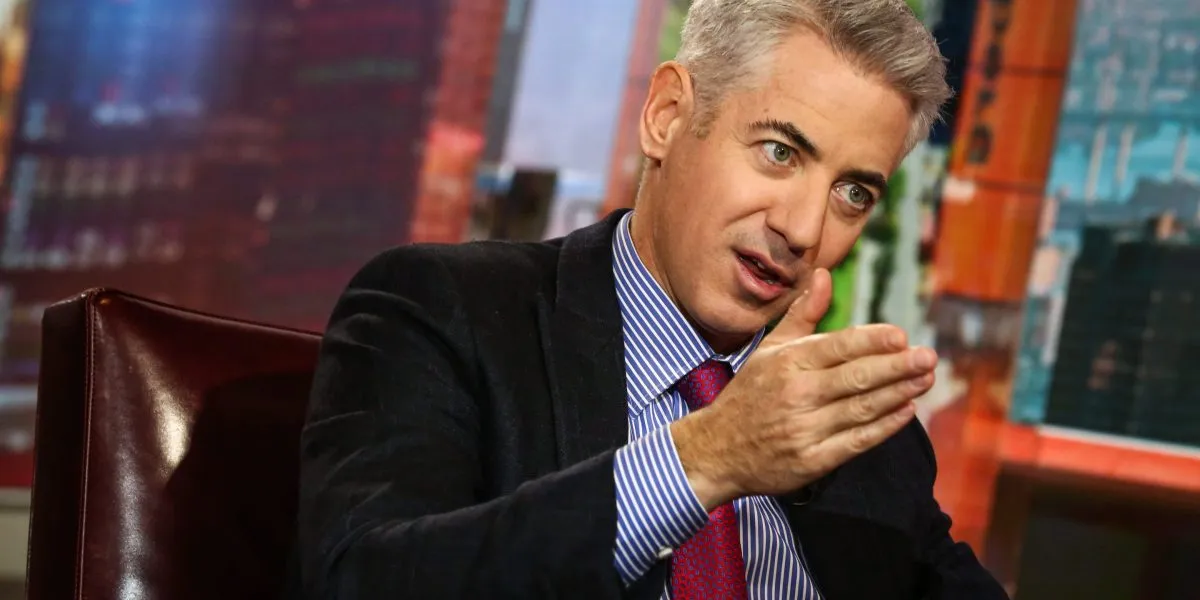
Prominent hedge fund manager Bill Ackman has expressed grave concerns regarding the upcoming New York City mayoral election, particularly about the left-wing candidate, Jabari Mamdani. Ackman fears that Mamdani's policies could lead to disastrous consequences, potentially triggering an exodus of wealthy residents and endangering crucial public services by eroding the city’s tax base. On social media, Ackman stated, “New York City under Mamdani is about to become much more dangerous and economically unviable.”
Ackman, a well-known activist investor and CEO of Pershing Square Capital Management, highlighted that his support for former President Trump might disqualify any candidates he could potentially endorse. In a public appeal, he urged anyone capable of defeating Mamdani in the November 4 election to come forward. “Funds will pour in,” he asserted, emphasizing that substantial capital is ready to back a viable competitor to Mamdani.
“Importantly, there are hundreds of millions of dollars of capital available to back a competitor to Mamdani that can be put together overnight,” he elaborated. Ackman went on to suggest that former NYC mayor Michael Bloomberg, who has a vast financial and organizational network, would be willing to lend his entire election apparatus to any aspiring candidate, enabling them to focus on campaigning rather than fundraising.
Despite Ackman’s enthusiasm, it remains to be seen whether New Yorkers would embrace such a candidate. The recent involvement of billionaire Elon Musk in Wisconsin’s state supreme court election serves as a reminder that the public does not always respond positively to wealthy individuals attempting to sway political races. Fortune has reached out to the Mamdani campaign for their comments on this unfolding situation.
In a stunning political turn, the charismatic 33-year-old outsider, Mamdani, recently triumphed over the scandal-plagued former governor Andrew Cuomo in the Democratic Party primary. This victory reflects a focused campaign addressing the cost-of-living crisis faced by everyday New Yorkers. While Cuomo leveraged his name recognition and extensive political connections to out-fundraise Mamdani by nearly four times, the relatively unknown assemblyman campaigned on vital issues such as rent freezes, subsidized city-owned supermarkets, and free public transit—all funded through taxes on wealthy individuals and corporations.
Ackman issued a stark warning, stating, “If 100 or so of the highest taxpayers in my industry chose to spend 183 days elsewhere, it could reduce NY state and city tax revenues by ~$5 -$10 billion or more.” He drew a parallel to hedge fund founder Ken Griffin, who relocated from Chicago to Miami, suggesting that a similar trend in New York could have catastrophic financial consequences.
Despite overcoming skepticism regarding his limited government experience and his Muslim faith, Mamdani has emerged as the frontrunner in the race against unpopular incumbent Eric Adams, who is running as an independent, and Curtis Sliwa, the Republican nominee and founder of the Guardian Angels. However, New York mayoral races are notoriously unpredictable due to chronically low voter turnout. For instance, Bill de Blasio was reelected in 2017 with only 14% of registered voters participating.
A significant increase in voter turnout, driven by concerns similar to those expressed by Ackman, could dramatically impact the election results. Political analysts also note that if Cuomo retains enough fundraising capability, he might consider an independent run, which could split the left vote and potentially spoil the race for Mamdani.
Ackman posited that these dynamics could pave the way for a centrist candidate looking to make a national impact. He even suggested that another businessman, like Bloomberg, might step into the fray. Although Ackman previously indicated he would not run himself, he framed the potential campaign as an attractive opportunity for aspiring politicians. “For the aspiring politician, there is no better way to get name recognition, build relationships with long-term donors, and to showcase oneself,” he stated. “The risk/reward of running for mayor over the next 132 days is extremely compelling as the cost in time and energy is small and the upside is enormous.”